Table of Contents[Hide][Show]
- Nutrivore Score for Turkey Giblets – 1567
- Turkey Giblet Nutrition Facts
- Turkey Giblet Nutrition Varies With Cooking
- Giblet Nutrition Varies With Type
Health Benefits of Turkey Giblet Nutrients+−
- Turkey Giblets Provide 544% DV Vitamin B12 (Cobalamin)
- Turkey Giblets Provide 438% DV Vitamin A
- Turkey Giblets Provide 157% DV Vitamin B7 (Biotin)
- Turkey Giblets Provide 107% DV Vitamin B2 (Riboflavin)
- Turkey Giblets Provide 90% DV Selenium
- Turkey Giblets Provide 83% DV Vitamin B9 (Folate)
- Turkey Giblets Provide 4.8 mg of CoQ10
- Turkey Giblets Provide 78% DV Vitamin B5 (Pantothenic Acid)
- Turkey Giblets Provide 306.0 mg of Taurine
- Turkey Giblets Provide 64% DV Copper
- Turkey Giblets Provide 54% DV Vitamin B3 (Niacin)
- Turkey Giblets Provide 38% DV Vitamin B6 (Pyridoxine)
- Turkey Giblets Provide 18.2 g of Protein
- Turkey Giblets Provide 33% DV Iron
- Turkey Giblets Provide 29% DV Choline
- Turkey Giblets Provide 29% DV Zinc
- How Much Turkey Giblets Should We Eat Per Day?
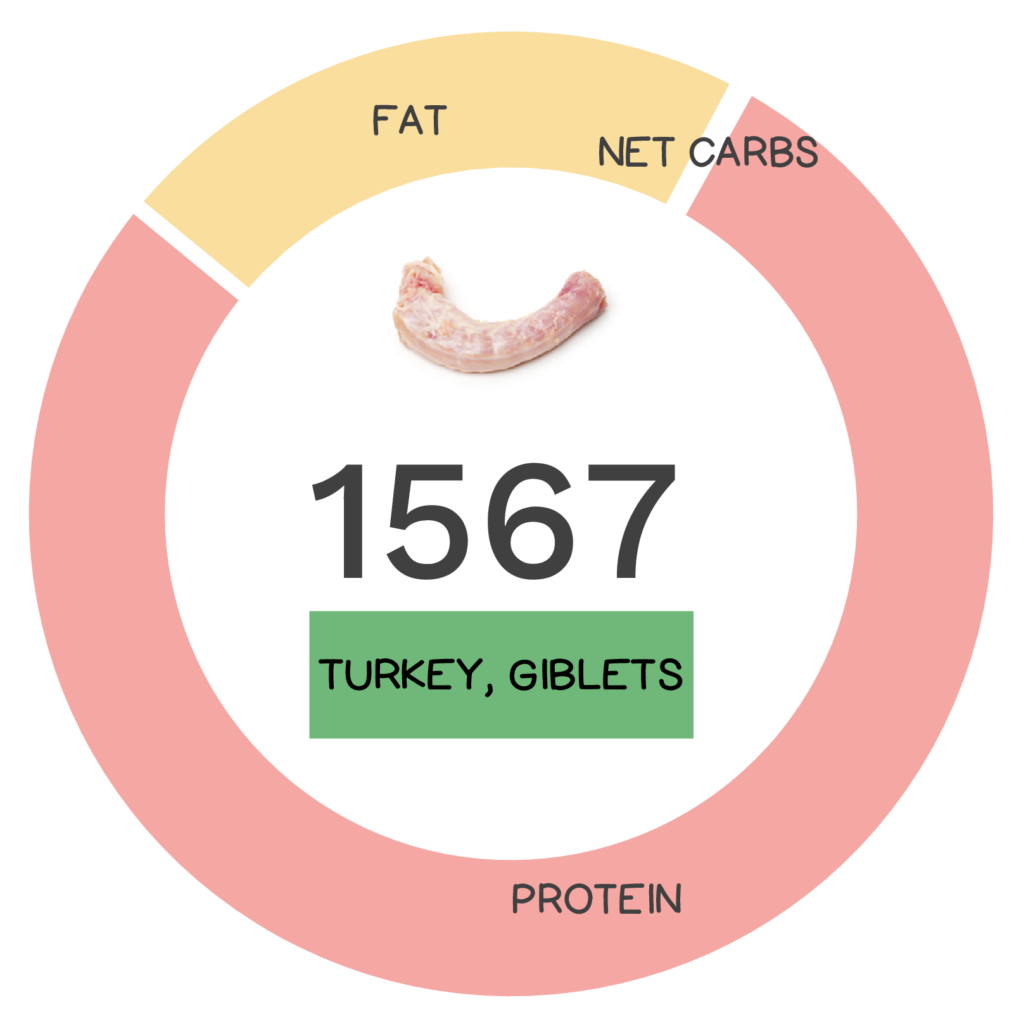
Most of us probably know that giblets are what’s included in the “little baggie” contained within our holiday turkey or duck but we may not actually know what is in there or what to do with it. It may surprise you to find out that giblets are in fact the bird’s edible organs. While this might sound “fowl,” giblets are often included in the stuffing and gravy, so even though you may not have realized it you’ve already tried (and enjoyed) this type of offal!
Offal is one of the most concentrated sources of just about every nutrient out there, including important vitamins, minerals, healthy fats, and essential amino acids.
Offal is another term for organ meats (also known as variety meats because there is a variety of different kinds!). The word itself derives from ‘off’ and ‘fall’, literally referring to the parts of the animal that fall off during butchering. Organ meats are nutritional powerhouses. In fact, offal is one of the most concentrated sources of just about every nutrient out there, including important vitamins, minerals, healthy fats, and essential amino acids. (Let’s just say it’s “offally” good for you!). Although organ meat may not be familiar to many of us today, organ meats have been part of the human diet since prehistory. Traditional cultures revered organ meats – they were treated like gold and reserved for the highest echelons of society (exactly who depended on the culture, sometimes it was saved for hunters, other times for pregnant women, sometimes the head of the family or tribe and other times for elders). Hunters and gatherers discard muscle meat in times of plenty and even animals value these meats above all else – in nature predators will often eat the liver of their prey first after a kill. Not only is snout-to-tail consumption good for our health, it’s important for environmental sustainability and the ethical treatment of animals. It means consuming every part of the animal and translates to eating a ratio of organ meat to muscle that’s similar to the animal’s own ratio (roughly one-fifth to one-quarter of the meat we eat with no upper limit). These foods include not just liver, but also blood, bone broth, brain, kidney, heart, lips, tail, tongue, tripe, and giblets to name a few.
Giblets typically include the bird’s gizzard, heart, liver, occasionally other organs such as kidneys, and sometimes the neck (not an organ!).
Giblets is a culinary term referring to miscellaneous edible avian organ meats, most commonly from chicken, duck and turkey. Typically, contained within that prized “little baggie” will be the bird’s gizzard, heart, liver, occasionally other organs such as kidneys, and sometimes the neck (not an organ!). Historically, other items such as feet, head, wing tips and the rooster’s cockscomb may also have been included. While most of these items are self-explanatory, to clarify (for those of us who may now know our avian anatomy) the gizzard is part of the bird’s digestive tract, which contains tiny pebbles and bits of grit consumed by the bird, and is responsible for helping to grind up food the bird eats (alligators, crocodiles and dinosaurs have them too!). Unfortunately, because giblets are rarely used in Western countries, they are often no longer included with purchase (but may instead be sold to pet food manufacturers).
Giblets are a great addition to bone broth, gravy, sauces, stuffing, or as part of a stew.
For those of us lucky to get them, giblets are a great addition to bone broth, gravy, sauces, stuffing, or as part of a stew but in that case, you’d need larger quantities which could be purchased separately from a butcher (or patiently stored in the freezer after every festive meal until you have sufficient quantities). Overall, turkey giblets are more nutrient dense than chicken giblets. They contain higher levels of vitamins B1 (thiamin), B2 (riboflavin), and B5 (pantothenic acid), choline, and copper, while chicken giblets are higher in vitamin C. When it comes to flavor, the taste of giblets is well “a mixed bag” (pun intended). Each of the organs has its own distinctive taste (for instance, gizzards and heart taste like dark meat). When used in combination they enrich the flavor of any dish they are a part of. So, why not give them a try? They’re inexpensive and nutrient-dense. Who knows? You just may end up liking them an “offal” lot!
Nutrivore Score for Turkey Giblets – 1567
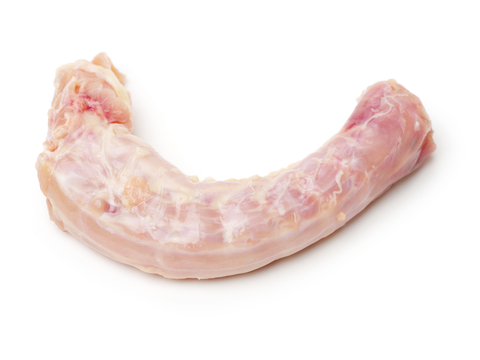
Turkey giblets have a Nutrivore Score of 1567, making them a super nutrient-dense food! Plus, they are a low-carb food; turkey giblets have only 0.1 grams of net carbs per 100-gram serving!
Per serving, turkey giblets are a best source (>50% daily value) of coQ10, copper, selenium, taurine, vitamin A, vitamin B2 (riboflavin), vitamin B3 (niacin), vitamin B5 (pantothenic acid), vitamin B7 (biotin), vitamin B9 (folate), and vitamin B12 (cobalamin); an excellent source (20-50% daily value) of choline, iron, protein, vitamin B6 (pyridoxine), and zinc; and a good source (10-20% daily value) of EPA+DHA, phosphorus, and vitamin B1 (thiamin).
Ditch Diets. Embrace Nutrients. Start with this FREE Guide.
Sign up for the free Nutrivore Newsletter, your weekly, science-backed guide to improving health through nutrient-rich foods — without dieting harder —and get the Beginner’s Guide to Nutrivore delivered straight to your inbox!

Turkey Giblet Nutrition Facts
One serving of turkey giblets is standardized to 100 grams (3.5 ounces). When you cook turkey giblets, they reduce in volume by about 30%: 100 grams of raw turkey giblets is roughly equivalent to 72 grams of cooked turkey giblets.
Turkey Giblet Nutrition Facts Per Serving
| Turkey giblets, raw | Nutrivore Score: 1567 | Nutrient Density: Super! |
|---|---|---|
| Serving Size: 3.5 ounces (100 grams) | Protein: 18.2 grams | Net Carbohydrates: 0.1 grams |
| Calories: 124 | Total Fat: 5.1 grams | Dietary Fiber: 0.0 grams |
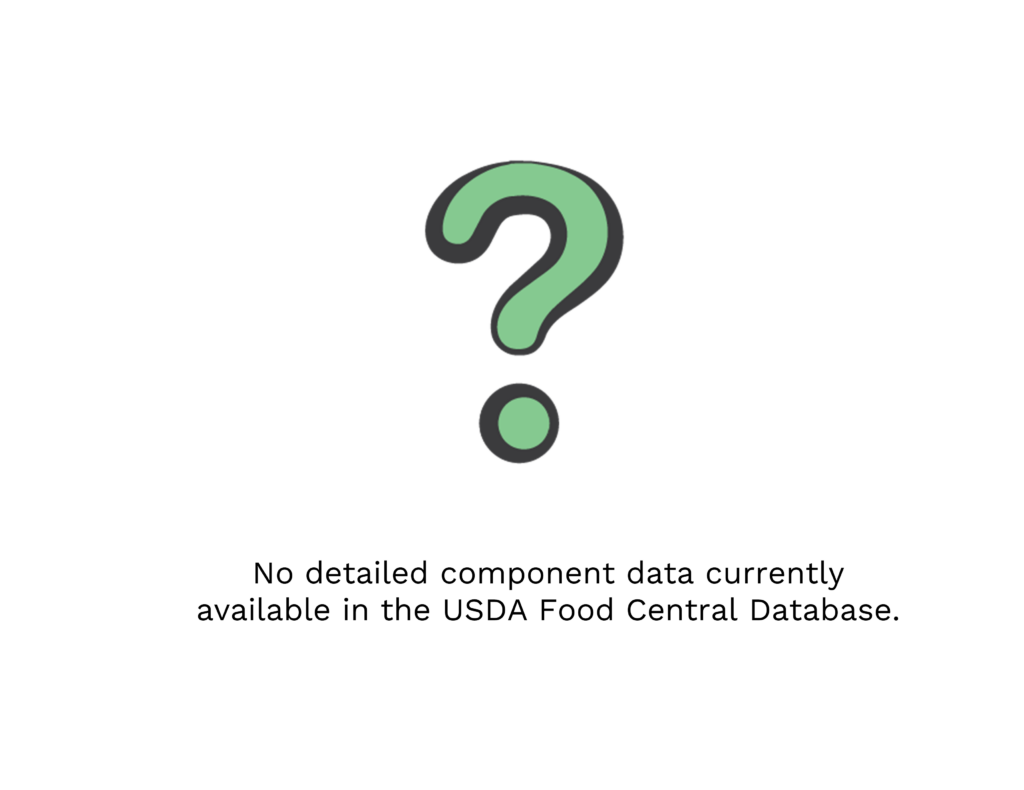
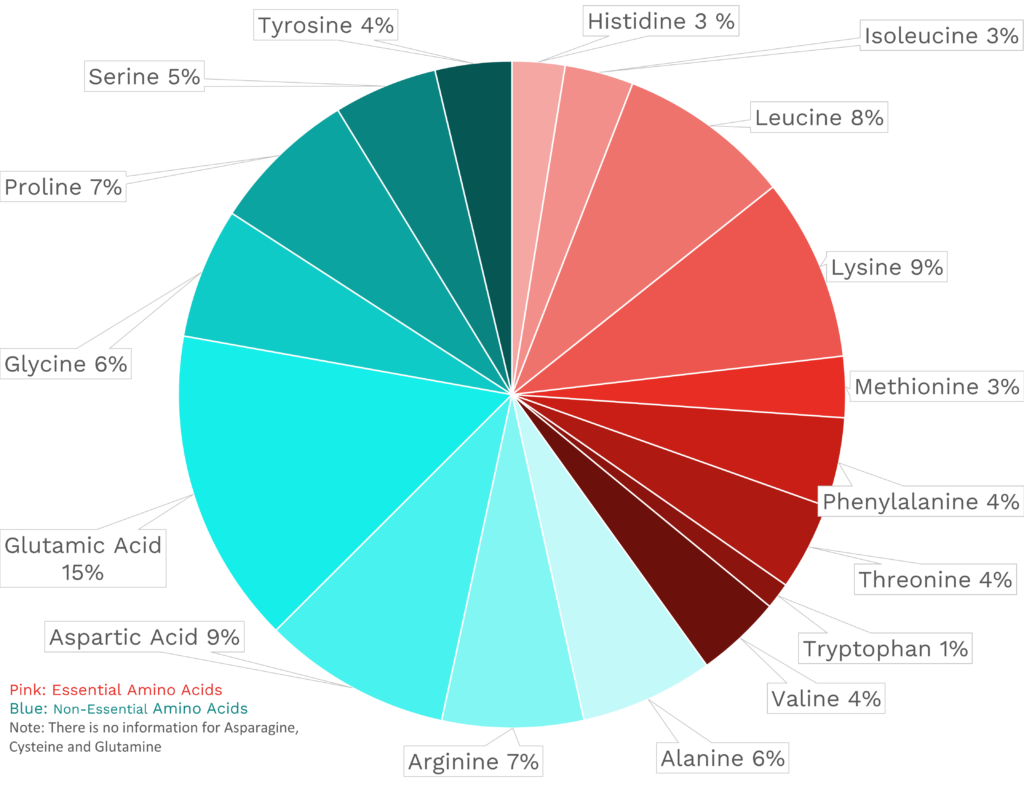
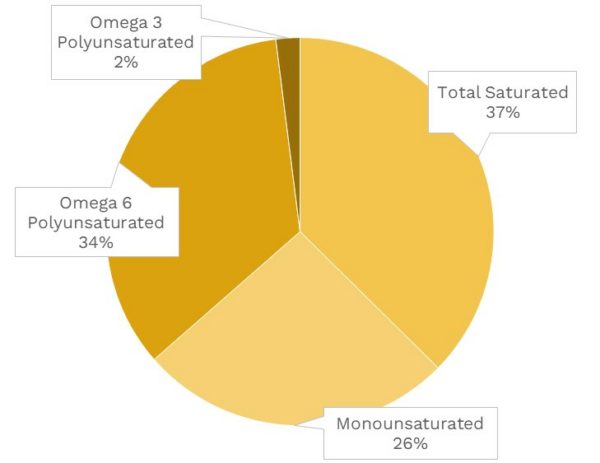
| VITAMINS | ||
|---|---|---|
| Vitamin A | 3939.0 μg RAE | 438% DV |
| Vitamin B1 (Thiamin) | 149.0 μg | 12% DV |
| Vitamin B2 (Riboflavin) | 1393.0 μg | 107% DV |
| Vitamin B3 (Niacin) | 8.7 mg | 54% DV |
| Vitamin B5 (Pantothenic Acid) | 3.9 mg | 78% DV |
| Vitamin B6 (Pyridoxine) | 654.0 μg | 38% DV |
| Vitamin B7 (Biotin) | 47.2 μg | 157% DV |
| Vitamin B9 (Folate) | 331.0 μg | 83% DV |
| Vitamin B12 (Cobalamin) | 13.1 μg | 544% DV |
| Vitamin C | 0.0 mg | 0% DV |
| Vitamin D (D2 + D3) | 0.8 μg | 4% DV |
| Vitamin E | 0.4 mg | 3% DV |
| Vitamin K | 0.0 μg | 0% DV |
| Choline | 160.0 mg | 29% DV |
| Myo-Inositol | 14.4 mg | ~ |
| CoQ10 | 4.8 mg | ~ |
| FUNCTIONAL FATS | ||
|---|---|---|
| MUFA | 1.0 g | 5% DV |
| ALA | 43.0 mg | 3% DV |
| EPA + DHA | 30.0 mg | 12% DV |
| CLA | 12.7 mg | ~ |
| Linoleic Acid | 1.0 g | 6% DV |
| MCT’s | 0.0 g | ~ |
| MINERALS | ||
|---|---|---|
| Calcium | 18.0 mg | 1% DV |
| Copper | 577.0 μg | 64% DV |
| Iodine | ~ | ~ |
| Iron | 5.9 mg | 33% DV |
| Magnesium | 22.0 mg | 5% DV |
| Manganese | 190.0 μg | 8% DV |
| Phosphorus | 223.0 mg | 18% DV |
| Potassium | 198.0 mg | 4% DV |
| Selenium | 49.3 μg | 90% DV |
| Sodium | 136.0 mg | 6% DV |
| Zinc | 3.2 mg | 29% DV |
| PHYTONUTRIENTS | ||
|---|---|---|
| Carotenoids | 0.0 μg | ~ |
| Polyphenols | 0.0 mg | ~ |
| Phytosterols | 0.0 mg | ~ |
| Glucosinolates | ~ | ~ |
| Thiosulfinates | ~ | ~ |
| Betalains | ~ | ~ |
| AMINO ACIDS & PEPTIDES | ||
|---|---|---|
| Taurine | 306.0 mg | ~ |
| Ergothioneine | 0.1 mg | ~ |
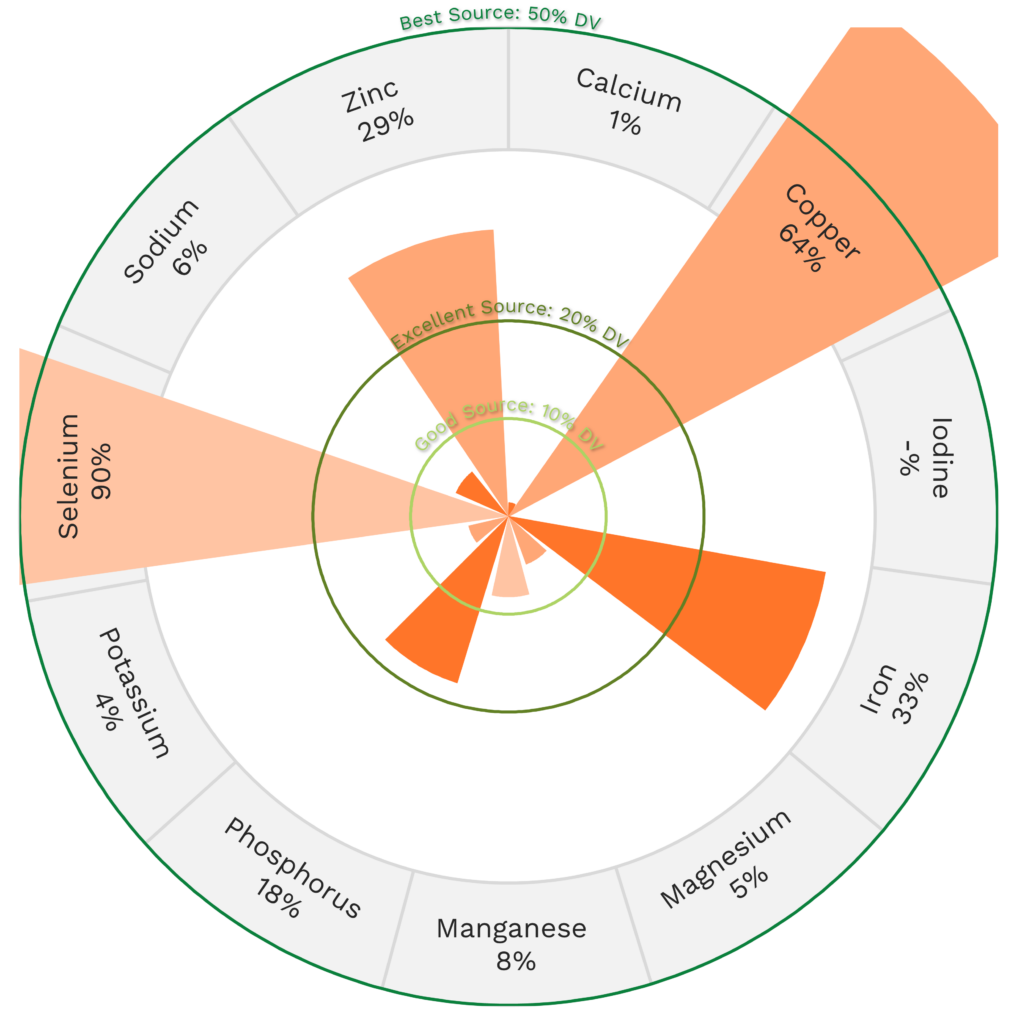
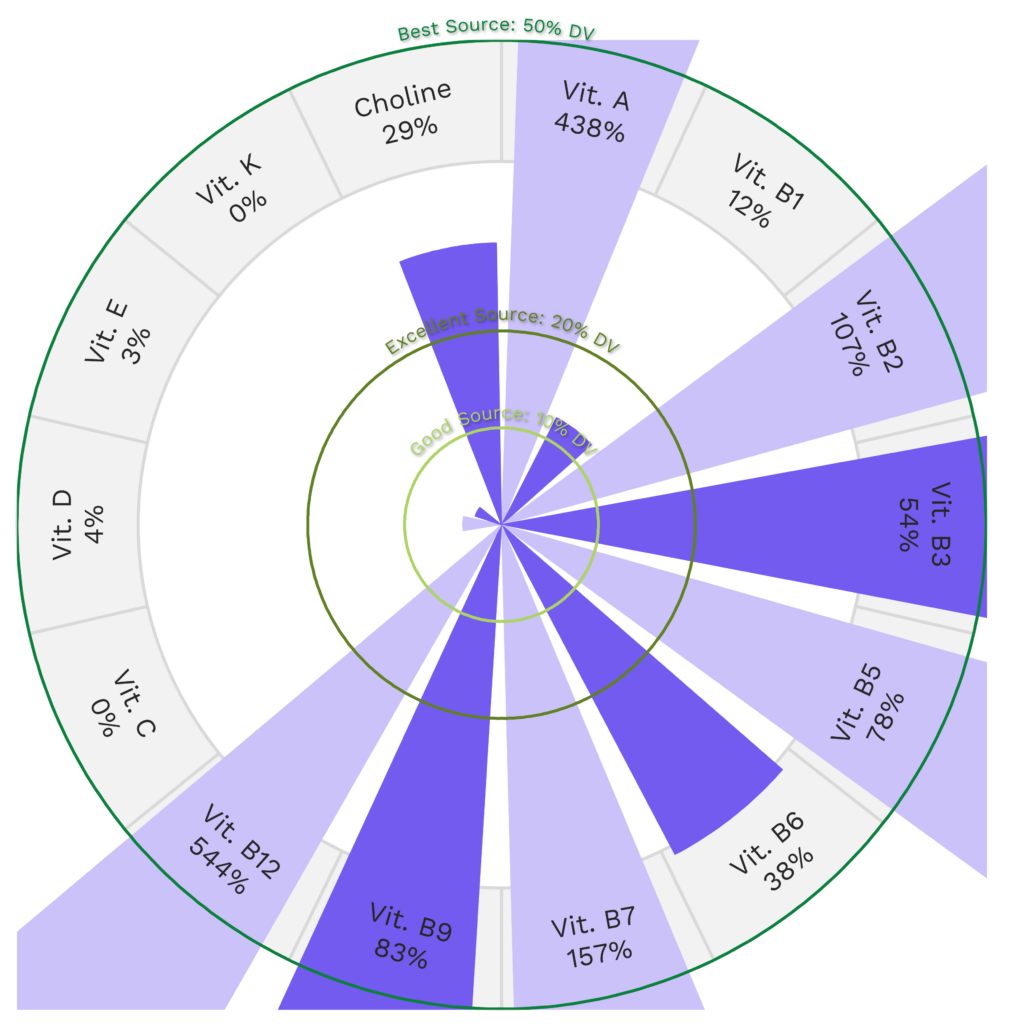
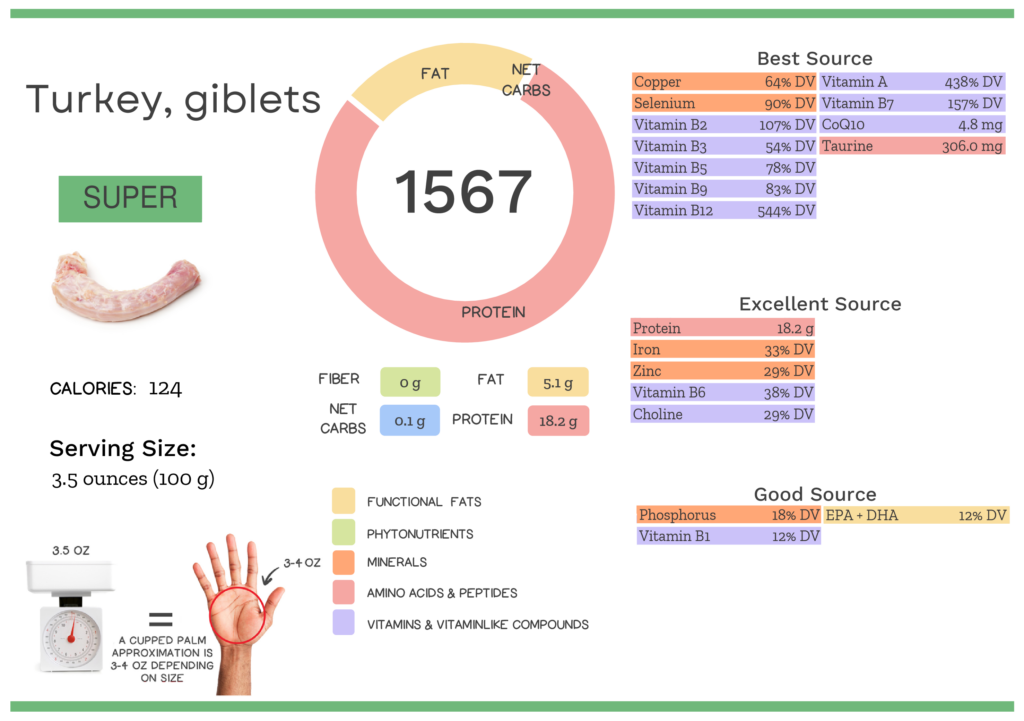
The THREE Easiest WayS to Eat Organ Meat
Freeze-dried grass-fed beef liver capsules
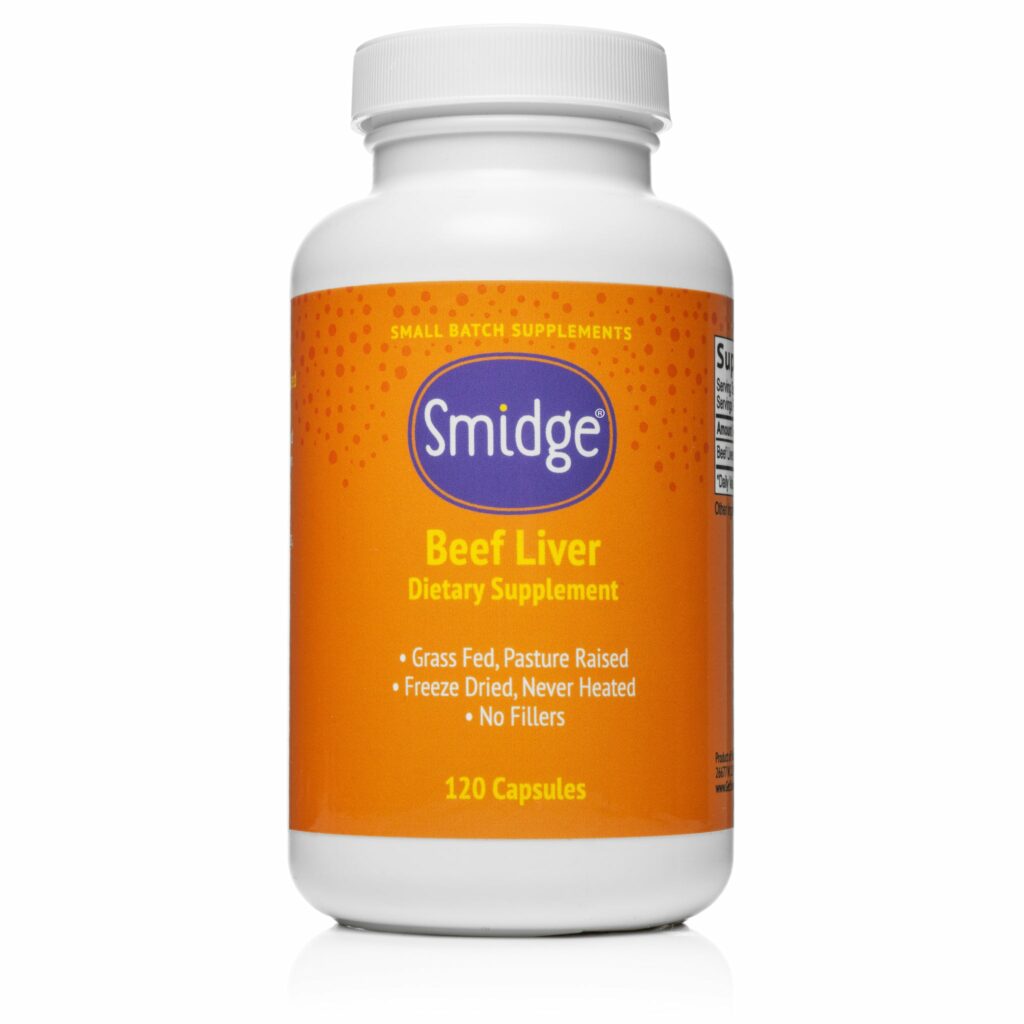
Freeze-dried, grass-fed beef heart, liver and kidney capsules
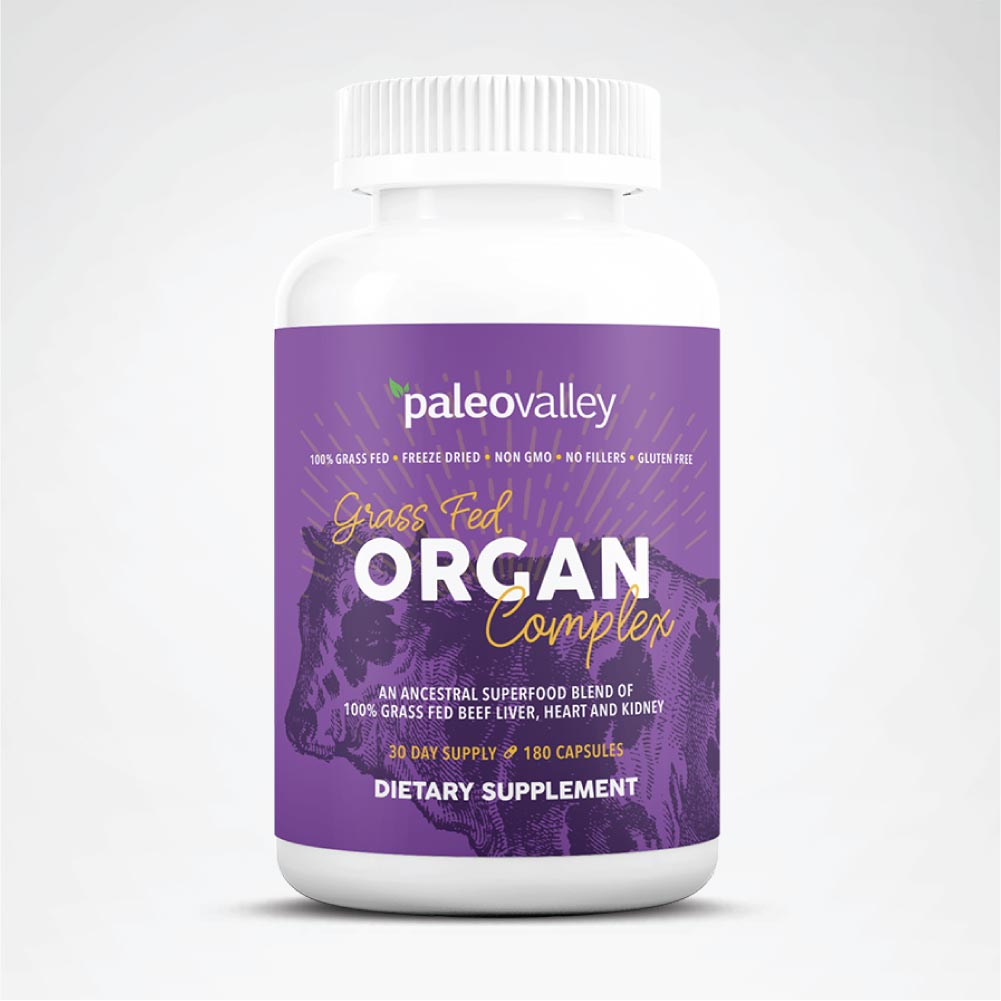
Delicious spice blends that sneak in grass-fed beef organ meat
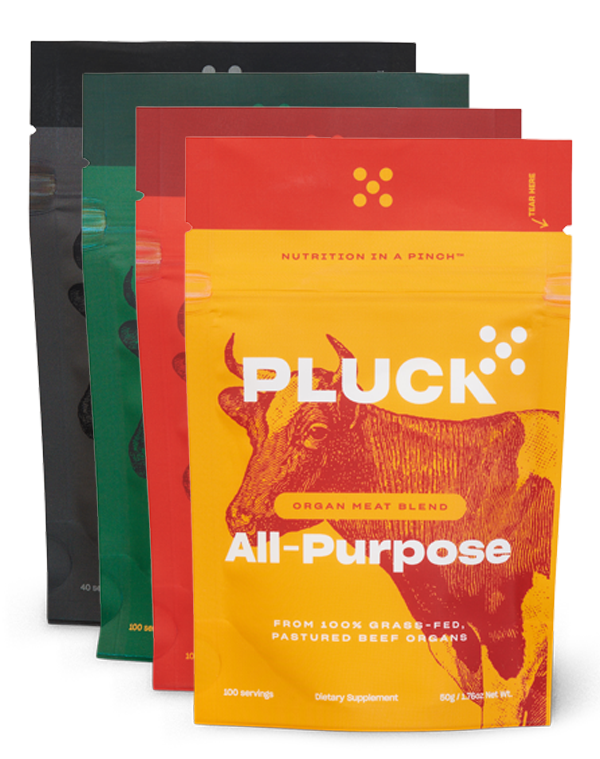
Turkey Giblet Nutrition Varies With Cooking
The Nutrivore Score of turkey giblets varies based on method of preparation.
| NUTRIVORE SCORE | |
|---|---|
| Turkey giblets, cooked, simmered | 1308 |
| Turkey giblets, raw | 1567 |
Giblet Nutrition Varies With Type
The Nutrivore Score of giblets varies depending on poultry type (as does the taste!) Roaster chickens are typically slightly older than broiler or fryer chickens, while stewing chickens are retired egg layers and capons are neutered roosters.
| NUTRIVORE SCORE | |
|---|---|
| Chicken, broilers or fryers, giblets, raw | 1338 |
| Chicken, capons, giblets, raw | 14931 |
| Chicken, roasting, giblets, raw | 11911 |
| Chicken, stewing, giblets, raw | 10061 |
| Turkey giblets, raw | 1567 |
Impressed how “offally” good turkey giblets are for you? Maybe your friends will be too!
Health Benefits of Turkey Giblet Nutrients
Let’s take a closer look at all of the best and excellent source of nutrients found in a 3.5-ounce serving of turkey giblets and see how they benefit our health.
Turkey Giblets Provide 544% DV Vitamin B12 (Cobalamin)
Turkey giblets are a phenomenal source of vitamin B12 (cobalamin), providing a whopping 544% of the daily value per 3.5-ounce serving!
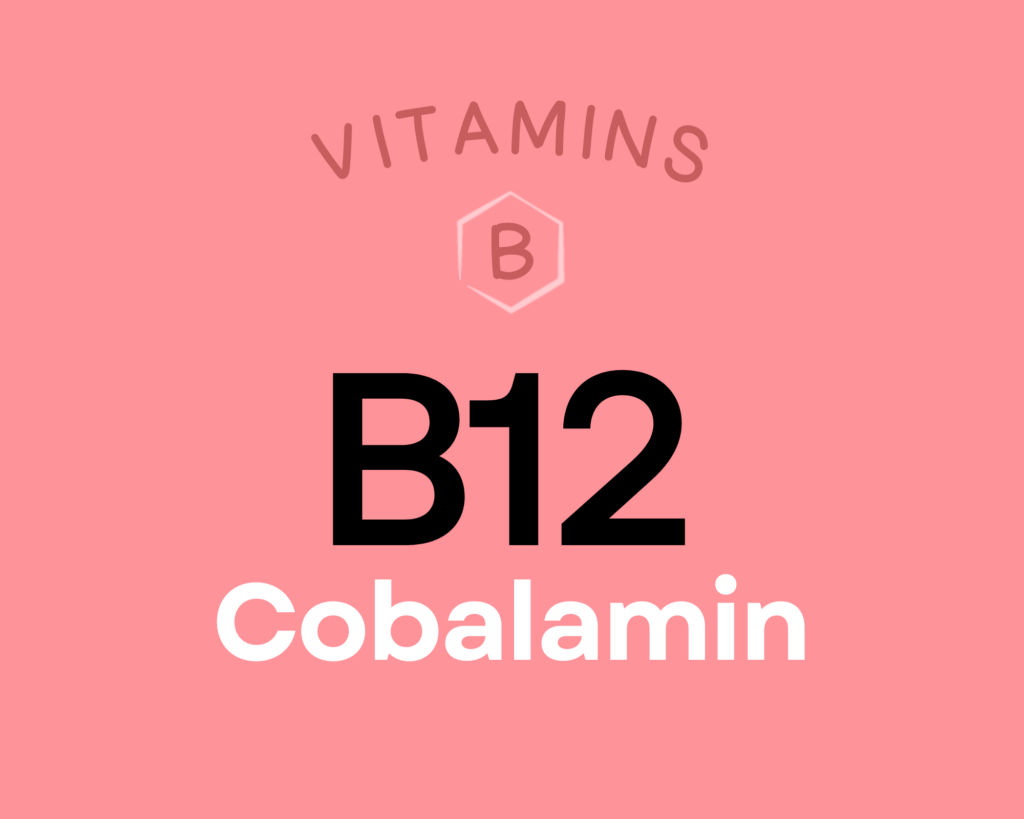
Vitamin B12 (cobalamin) is a water-soluble vitamin that serves as a cofactor for enzymes involved in energy metabolism, red blood cell production, DNA synthesis, neurotransmitter production, nervous system health, and folate metabolism. As a result of these roles, vitamin B12 is vital for maintaining brain and nervous system health, and may have a protective effect against dementia, Alzheimer’s disease, and depression. There’s also some evidence vitamin B12 may be cancer-protective, possibly through supporting folate metabolism (which then assists in repairing DNA damage). Learn more about vitamin B12 here.
Turkey Giblets Provide 438% DV Vitamin A
Turkey giblets are an amazing source of vitamin A, providing 438% of the daily value per 3.5-ounce serving!
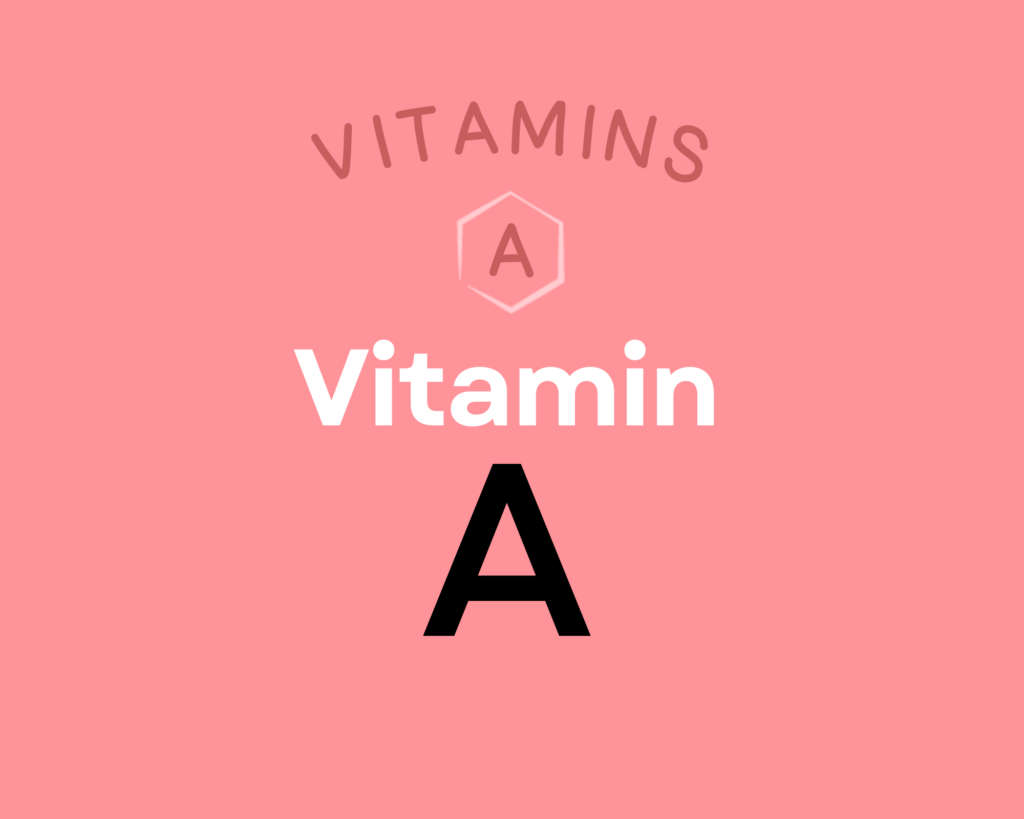
Vitamin A is actually a group of fat-soluble retinoids with vitamin A activity in the body. This nutrient is essential for a number of physiological functions—particularly vision, reproduction, thyroid health, immunity, and cellular communication. Getting enough vitamin A helps protect against some vision disorders (like night blindness and macular degeneration), supports a healthy menstrual cycle and sperm production, reduces infection risk, and allows for proper growth and development from the fetal years through childhood. Learn more about vitamin A here.
Turkey Giblets Provide 157% DV Vitamin B7 (Biotin)
Turkey giblets are a wonderful source of vitamin B7 (biotin), providing 157% of the daily value per 3.5-ounce serving!
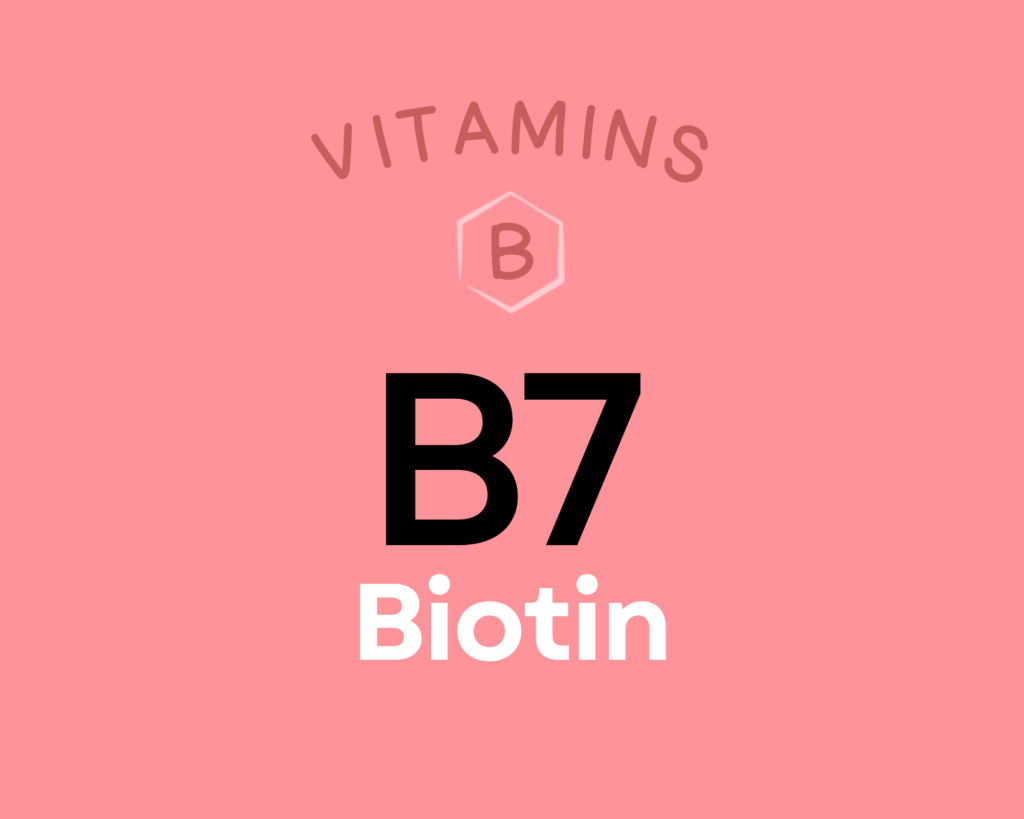
Biotin is a water-soluble B vitamin, also known as vitamin B7. Like other B vitamins, it plays an important role in energy metabolism (serving as a coenzyme for five carboxylase enzymes), neurotransmitter production, cellular function, and the function of various organs. Getting enough biotin can help support healthy nail and hair growth. It’s also particularly important during pregnancy, with low intakes increasing the risk of premature delivery and birth defects. There’s even some evidence biotin can benefit diabetics and reduce functional disabilities in people with multiple sclerosis. Learn more about biotin here.
Turkey Giblets Provide 107% DV Vitamin B2 (Riboflavin)
Turkey giblets are a best source of vitamin B2 (riboflavin), providing 107% of the daily value per 3.5-ounce serving!
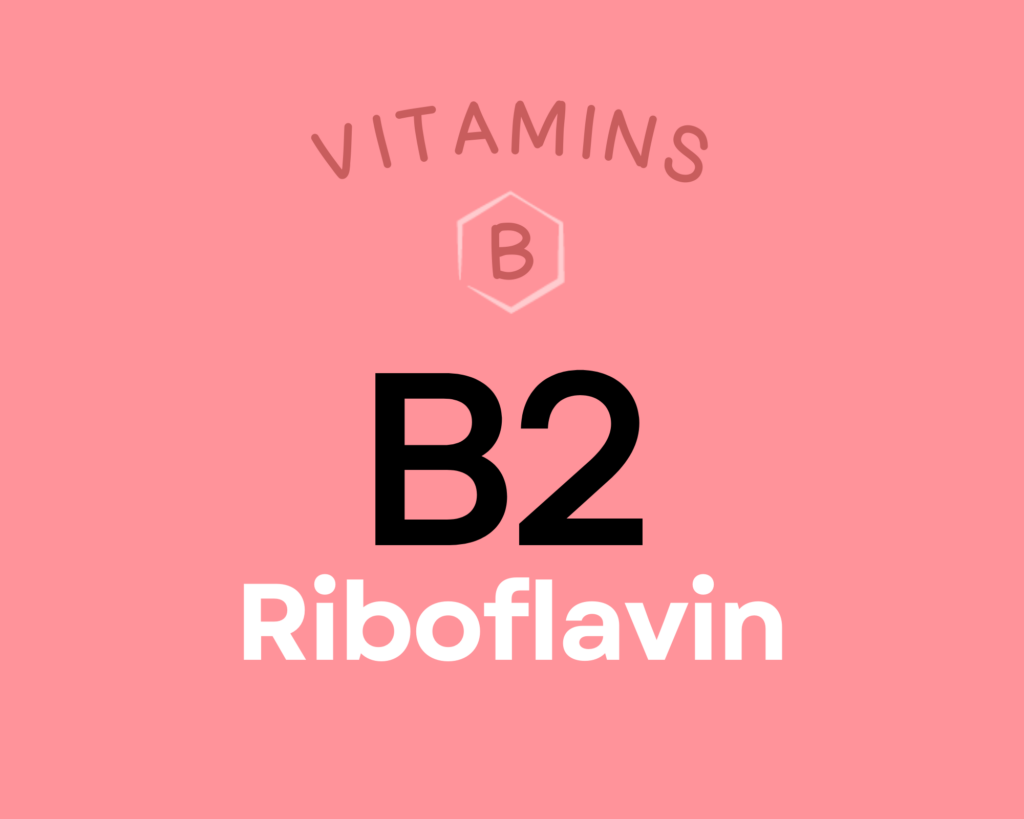
Riboflavin (or vitamin B2) is a vitamin that helps form two important coenzymes involved in oxidation-reduction reactions: flavin mononucleotide (FMN), and flavin adenine dinucleotide (FAD). Collectively, these coenzymes are involved in antibody production, energy production, growth and development, skin and hair health, and the metabolism of several other nutrients (vitamin B6, niacin, folate, and iron). Research suggests a role for riboflavin in preventing or treating migraine headaches, cardiovascular disease, cataracts, and preeclampsia during pregnancy. It also possesses some anti-cancer properties due to its involvement in folate metabolism and MTHFR activity. Learn more about vitamin B2 here.
Turkey Giblets Provide 90% DV Selenium
Turkey giblets are a great source of selenium, providing 90% of the daily value per 3.5-ounce serving!
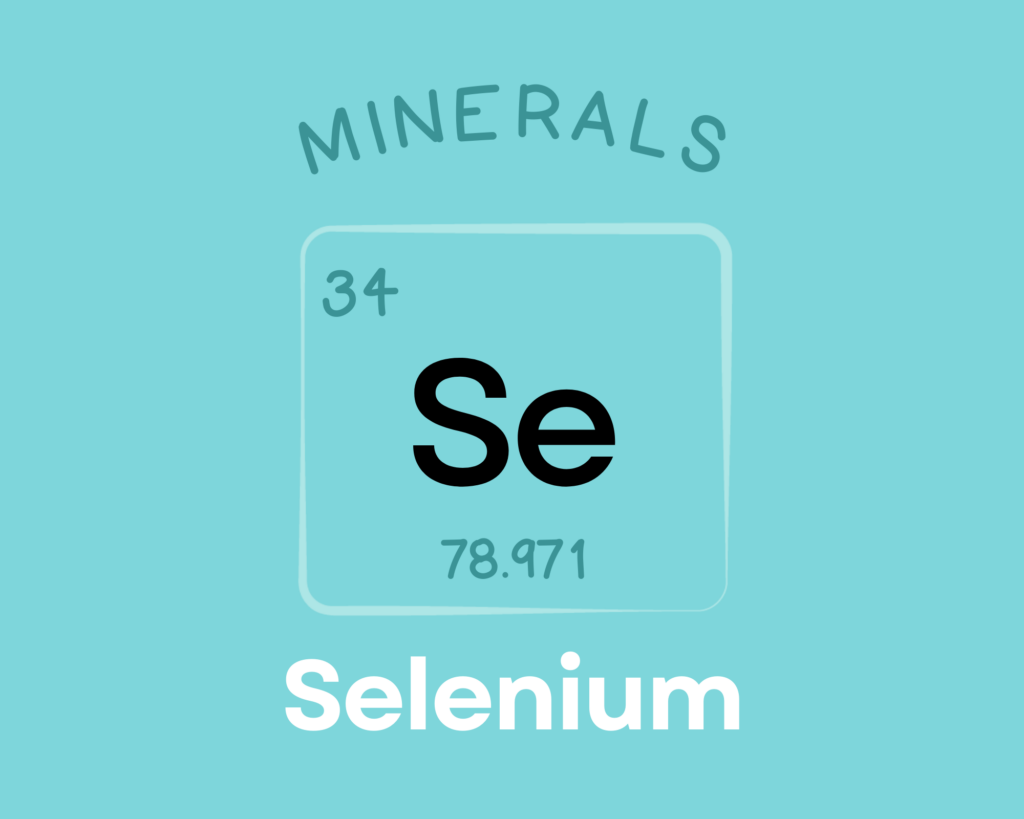
Selenium is a trace mineral needed by all mammals to sustain life. It serves as a component of the non-proteinogenic amino acids selenocysteine and selenomethionine, and also helps form over two dozen selenoproteins involved in reproduction, thyroid hormone metabolism, antioxidant defense, DNA synthesis, and immunity. Observational research suggests selenium could play a protective role against cancer, heart disease, asthma, and inflammatory bowel disease, although human trials have generally been lacking or contradictory. There’s also evidence that selenium can play a preventative role in asthma and inflammatory bowel disease, while also reducing mortality in patients with sepsis. Learn more about selenium here.
Turkey Giblets Provide 83% DV Vitamin B9 (Folate)
Turkey giblets are a best source of vitamin B9 (folate), providing 83% of the daily value per 3.5-ounce serving!
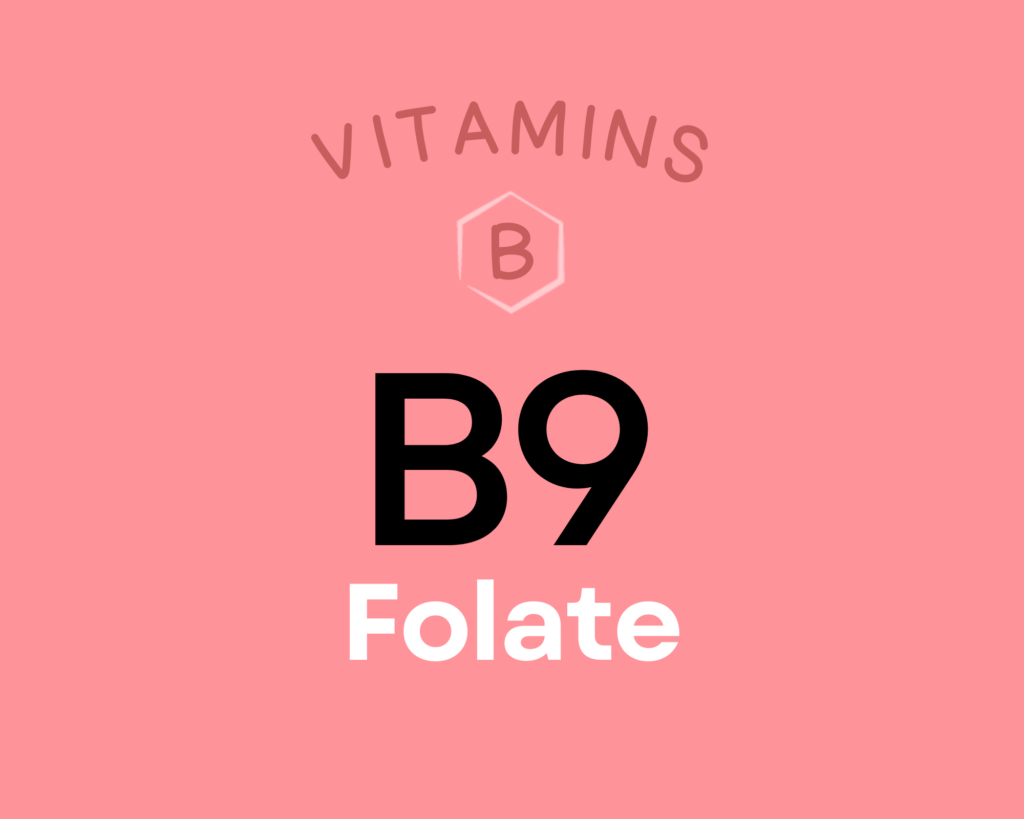
Vitamin B9 (folate) is an essential B vitamin that plays roles in blood cell production, the formation of genetic material (including DNA), and cell growth and function. It’s particularly important during pregnancy, when folate demands increase due to the rapid creation of new cells and DNA. Along with helping protect against fetal development problems, folate can support cardiovascular health, potentially protect against certain cancers, and reduce the risk of cognitive and neurological disorders later in life. Learn more about vitamin B9 here.
Turkey Giblets Provide 4.8 mg of CoQ10
Turkey giblets are also a best source of coQ10, providing 4.8 mg of coQ10 per 3.5-ounce serving!
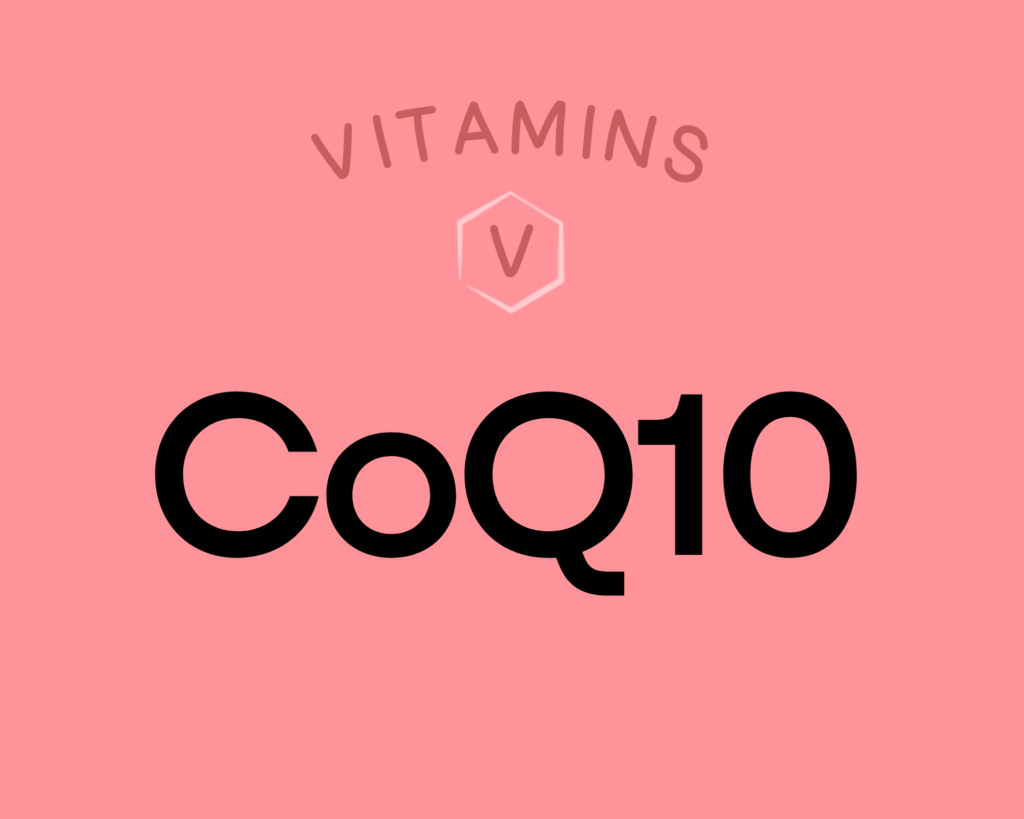
Ubiquinone is the oxidized form and ubiquinol is the reduced, more bioavailable form of the vitaminlike compound coenzyme Q10 (coQ10). CoQ10 is a potent antioxidant and a cofactor in the electron transport chain for the production of ATP. It may be helpful in treating or preventing heart and blood vessel conditions, diabetes, gum disease, muscular dystrophy, chronic fatigue syndrome, and breast cancer. Sources include beef, pork, mackerel, yellowtail fish, and chicken; it’s also found in smaller amounts in vegetables like broccoli and herbs like parsley. Learn more about coQ10 here.
Turkey Giblets Provide 78% DV Vitamin B5 (Pantothenic Acid)
Turkey giblets are rich in vitamin B5 (pantothenic acid), providing 78% of the daily value per 3.5-ounce serving!
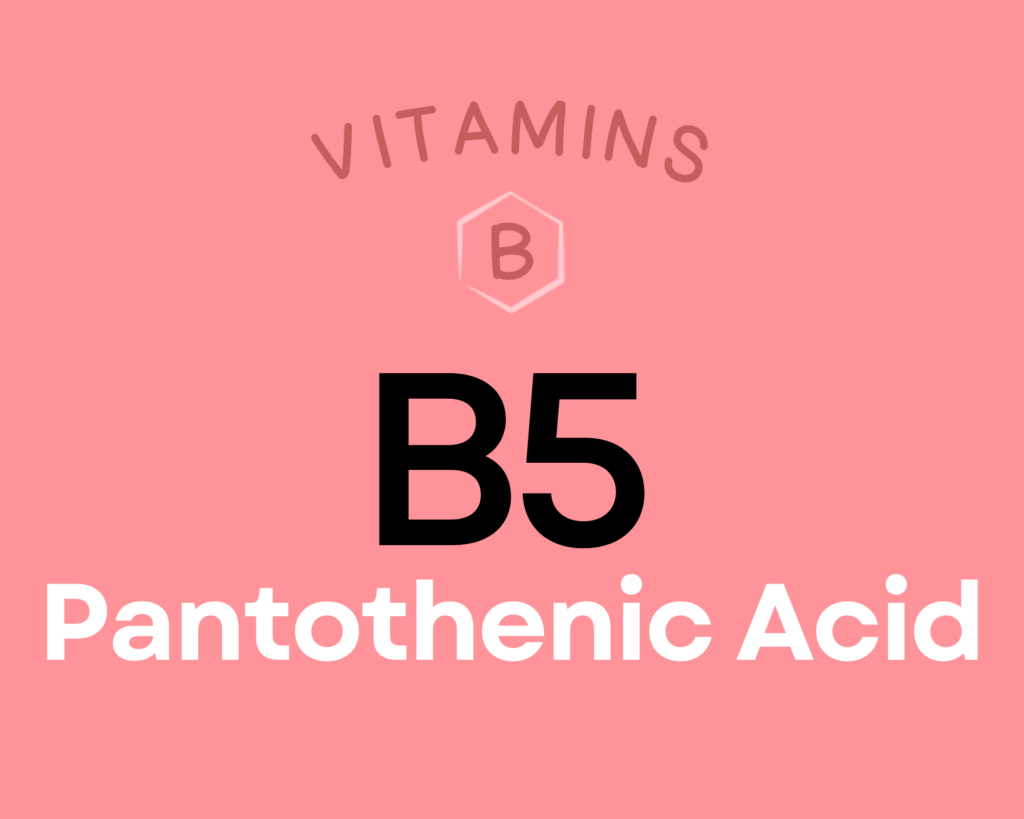
Pantothenic acid (or vitamin B5) is a water-soluble vitamin that serves as a cofactor for coenzyme A—which itself is critical for metabolizing many drugs and toxins, as well as forming derivatives (acetyl-CoA and succinyl-CoA) that participate in the synthesis of cholesterol, fatty acids, melatonin, the neurotransmitter acetylcholine, steroid hormones, heme, and vitamins A and D. Coenzyme A is also needed in the Krebs cycle, giving pantothenic acid a role in energy metabolism. Research suggests that a pantothenic acid derivative (pantethine) can help improve blood lipid profiles and reduce fatty streak formation and lipid deposition in the arteries, giving it a cardio-protective role. Additional research shows that panthothenic acid can accelerate wound healing, boost cellular production of the important antioxidant glutathione, and possibly help improve symptoms of rheumatoid arthritis. Learn more about vitamin B5 here.
Turkey Giblets Provide 306.0 mg of Taurine
Turkey giblets are a best source of taurine, providing 306.0 mg of taurine per 3.5-ounce serving!
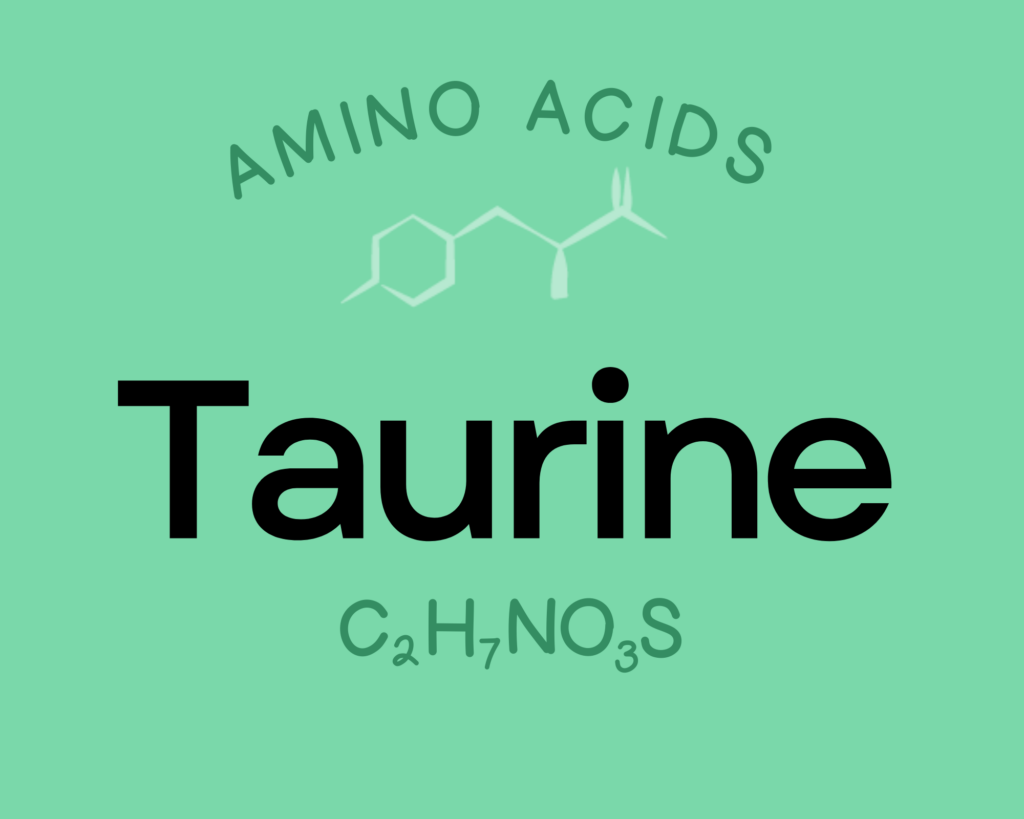
Taurine is a non-proteinogenic amino sulfonic acid that supports neurological development, serves as a major component of bile (which helps to digest fats), and plays a role in water and mineral regulation within the blood (including through membrane stabilization and calcium signaling). Taurine also regulates the immune system and serves as an important antioxidant, and it plays a role in cardiovascular function and the development of skeletal muscle.
Turkey Giblets Provide 64% DV Copper
Turkey giblets are also a best source of copper, providing 64% of the daily value per 3.5-ounce serving!
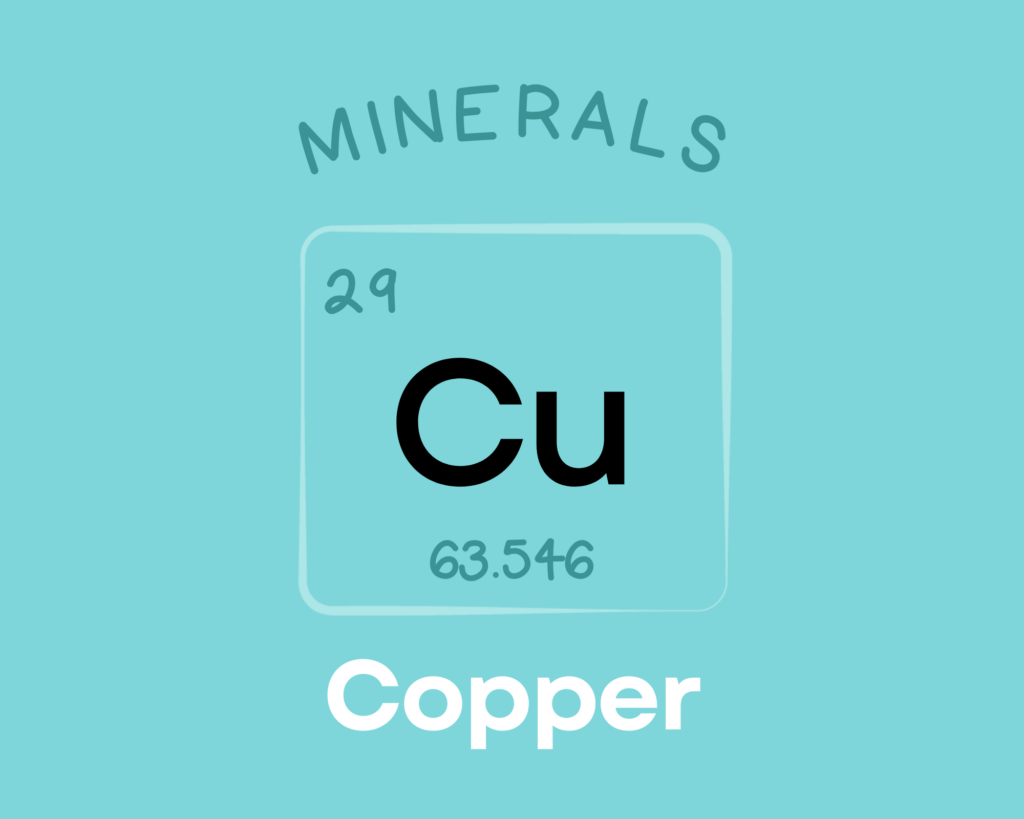
Copper is a trace mineral that’s essential for all living organisms. Copper serves as a component of numerous enzymes and proteins in the body, giving it diverse roles in the growth, development, and maintenance of various organs (including the heart and brain), bone, and connective tissue. Copper is also involved in glucose and cholesterol metabolism, helps regulate gene expression, can scavenge free radicals, and is needed for the production of red blood cells. Learn more about copper here.
Turkey Giblets Provide 54% DV Vitamin B3 (Niacin)
Turkey giblets are a great source of vitamin B3 (niacin), providing 54% of the daily value per 3.5-ounce serving!
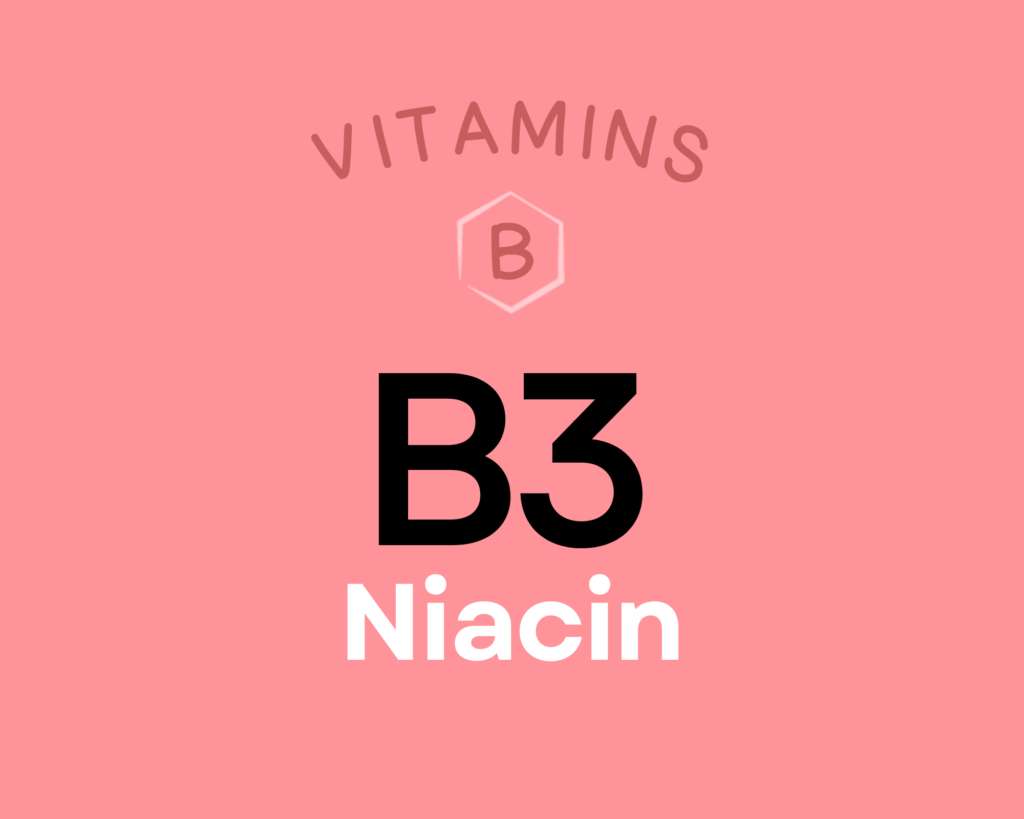
Niacin is a water-soluble B complex vitamin (vitamin B3) that’s needed to produce two very important coenzymes: nicotinamide adenine dinucleotide (NAD) and nicotinamide adenine dinucleotide phosphate (NADP). NAD and NADP are needed for over 400 enzymes involved in DNA repair, fatty acid synthesis, antioxidant systems, detoxification, and hormone synthesis, as well as the breakdown of fat, carbohydrate, protein, and alcohol. Niacin has therapeutic potential for cardiovascular disease and hyperlipidemia, and may also be protective against cancer and type 1 diabetes. Some research suggests it could benefit health outcomes for patients with HIV or schizophrenia as well. Learn more about niacin here.
Turkey Giblets Provide 38% DV Vitamin B6 (Pyridoxine)
Turkey giblets are an excellent source of vitamin B6 (pyridoxine), providing 38% of the daily value per 3.5-ounce serving!
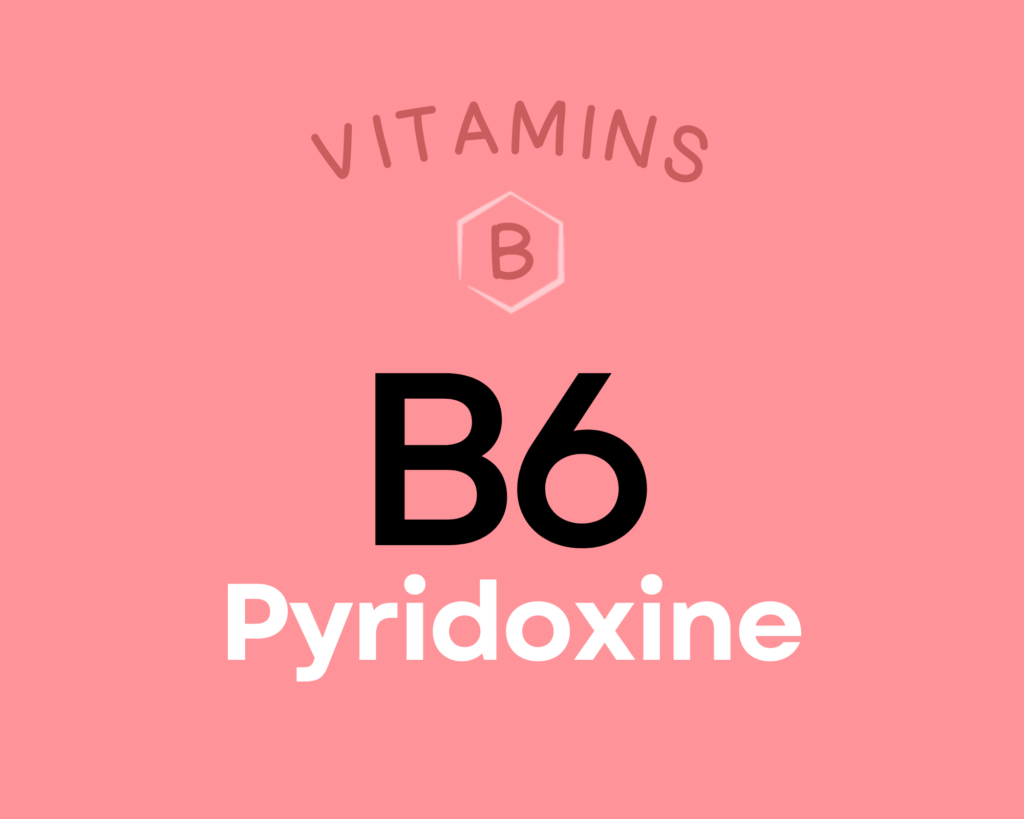
Vitamin B6 (pyridoxine) is a group of six water-soluble compounds with a similar chemical structure, all of which can be converted into their active form of pyridoxal 5’-phospate (PLP). Over 100 different enzymes require vitamin B6 in order to carry out their various functions in protein metabolism, fatty acid metabolism, neurotransmitter production, gluconeogenesis, hemoglobin synthesis, the release of glucose from glycogen, and energy metabolism (particularly the production of ATP in the Krebs cycle). Research suggests vitamin B6 may help protect against cardiovascular disease and certain cancers, could reduce the risk of depression among the elderly, and even reduce symptoms of morning sickness and PMS. Learn more about vitamin B6 here.
Turkey Giblets Provide 18.2 g of Protein
Turkey giblets are also an excellent source of protein, providing 18.2 g of protein per 3.5-ounce serving!
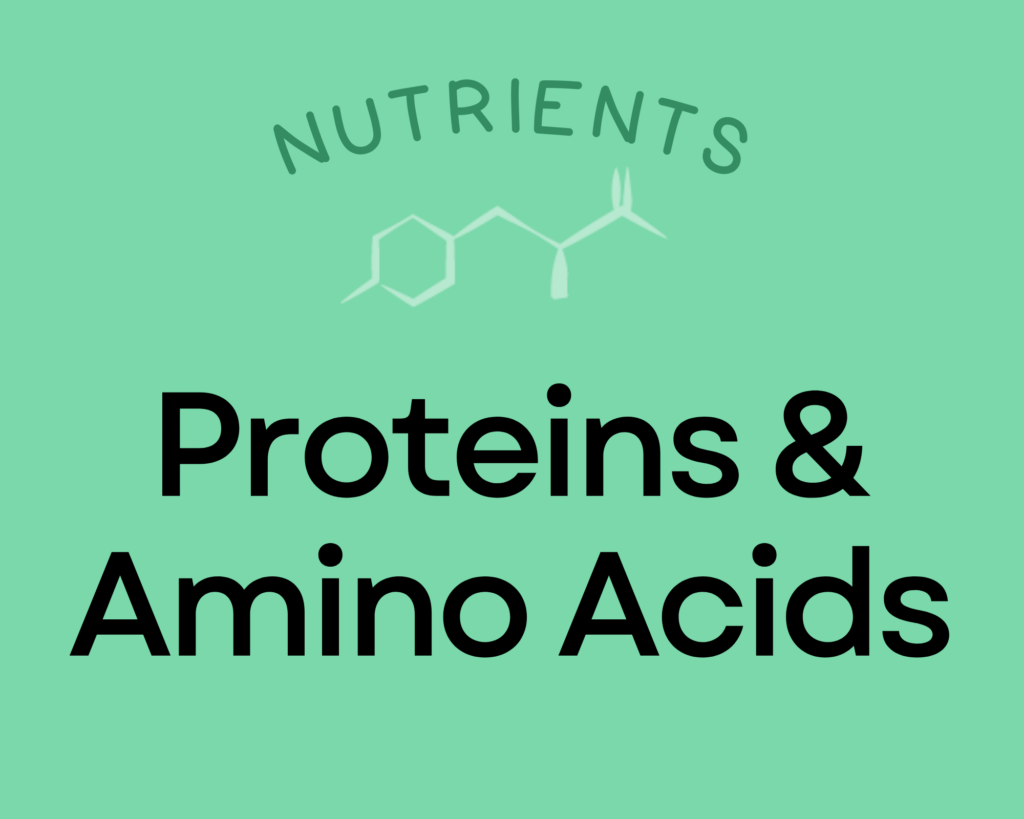
Proteins are the molecules that actually perform most of the various functions of life. In addition to being major structural components of cells and tissues, they have incredibly diverse roles from driving chemical reactions (e.g., enzymes) to signaling (e.g., some types of hormones) to transporting and storing nutrients. Dietary protein is necessary to supply the amino acid building blocks for all of the proteins in our bodies. The recommended daily allowance of protein is 0.36 grams per pound body weight (0.8 grams per kilogram of body weight). That amounts to 56 grams for a 150-pound person. However, it’s important to emphasize that this number is considered a minimum daily allotment, and there is no established upper limit. In fact, many studies have evaluated diets containing three to four times more protein than this minimum and proven benefits to weight management, body composition, hormone regulation, and cardiovascular health. These studies suggest that an optimal protein intake for most people is probably in the range of 1.2 to 1.8 grams per kilogram bodyweight (82 to 122 grams for that same 150-pound person), and that people who are very active may see the best results at even higher intake. Learn more about protein and amino acids here.
Turkey Giblets Provide 33% DV Iron
Turkey giblets are an excellent source of iron, providing 33% of the daily value per 3.5-ounce serving!
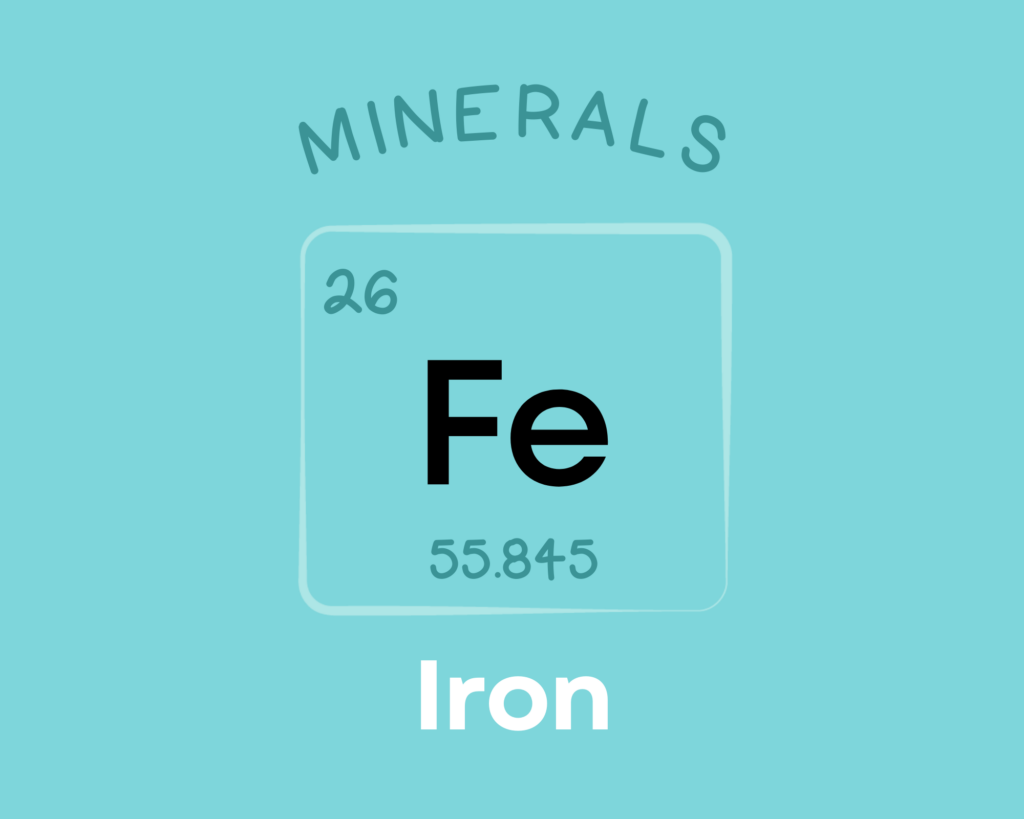
Iron is a mineral required for the metabolism of all living organisms. It’s needed for the function of numerous iron-dependent proteins involved in electron transport, energy metabolism, oxygen transport and storage, DNA replication and repair, free radical scavenging, and oxidative processes. It plays an important role in reproductive health, gestation, immunity, and central nervous system development. Learn more about iron here.
Turkey Giblets Provide 29% DV Choline
Turkey giblets are also an excellent source of choline, providing 29% of the daily value per 3.5-ounce serving!
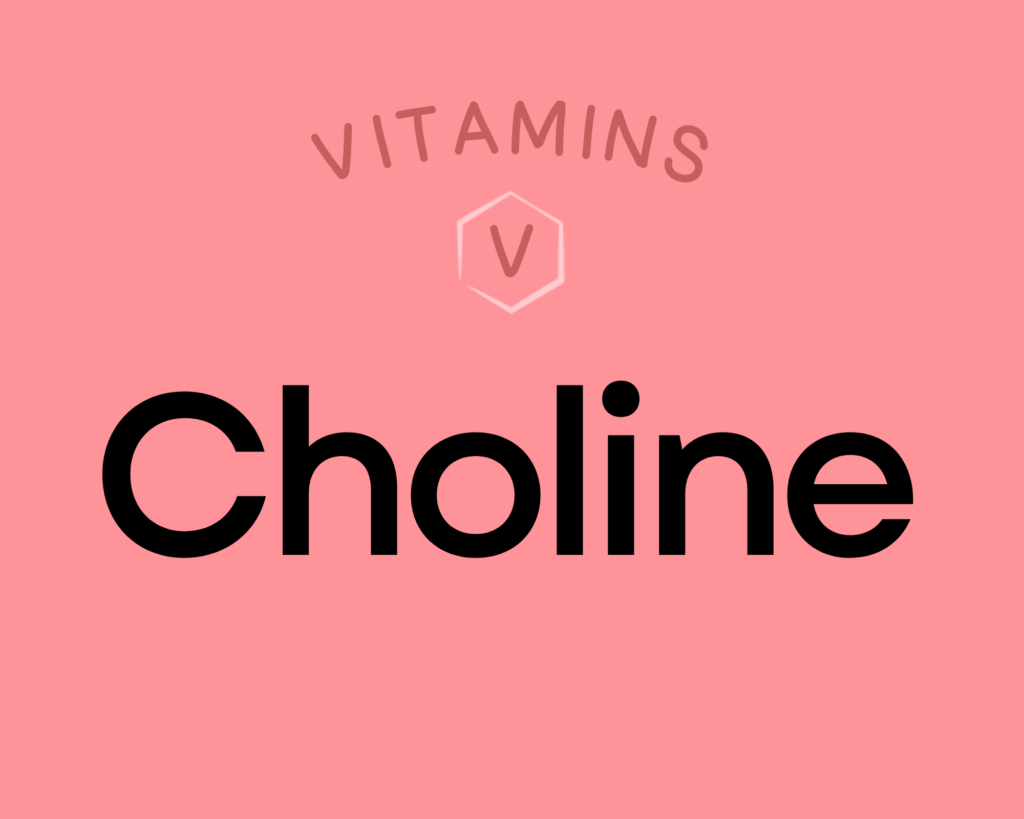
Choline is often grouped together with B-complex vitamins, and sometimes referred to as vitamin B4. It plays an essential role in building cell membranes. Choline also serves as the backbone for a neurotransmitter called acetylcholine, which is involved in heart health, gut motility (the movement of contents through the digestive tract controlled by the coordinated contraction and relaxation of specialized gut muscle tissue), and muscle movement. Adequate intake during pregnancy can help reduce risk of neural tube defects.
Turkey Giblets Provide 29% DV Zinc
Turkey giblets are an excellent source of zinc, providing 29% of the daily value per 3.5-ounce serving!
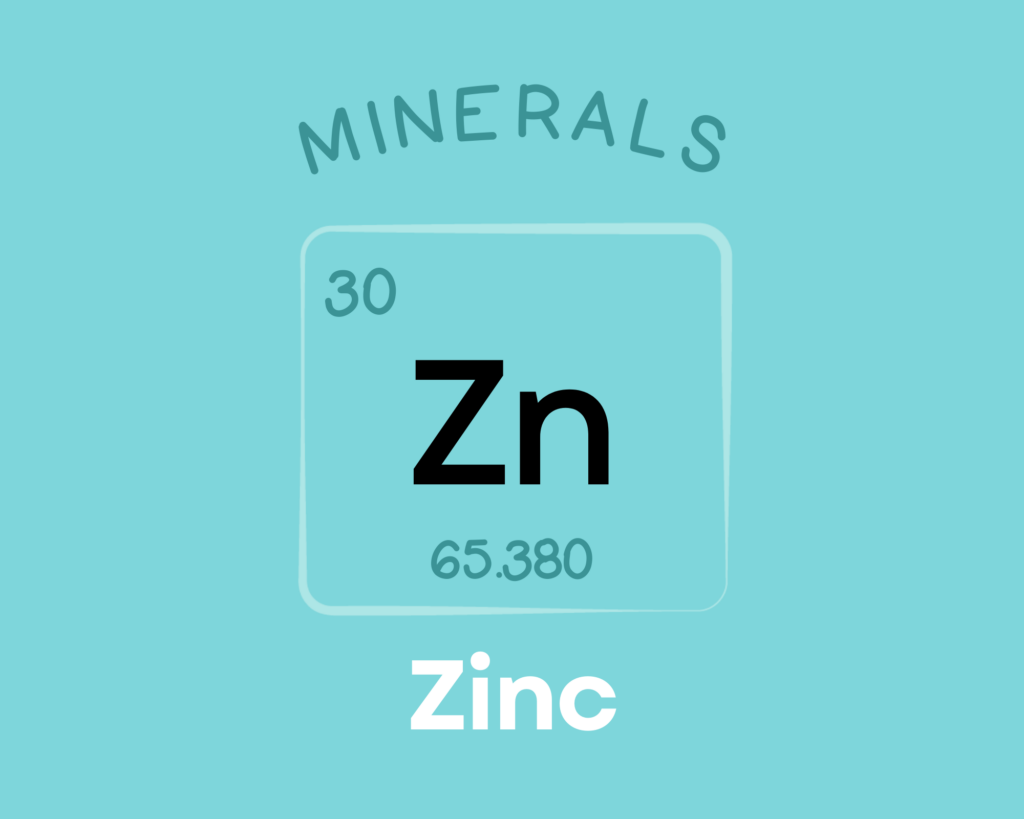
Zinc is an essential trace mineral that serves as a cofactor for over 300 enzymes and 1000 transcription factors, giving it important roles in immune function, sensory organ function, reproduction, gene regulation, DNA synthesis, wound healing, and the metabolism and activity of multiple other nutrients. Research shows it can reduce the duration of the common cold when taken shortly after the onset of illness, and can also benefit immune health in the elderly and among HIV/AIDS patients. Some studies also suggest a protective role of zinc in neurological conditions like Alzheimer’s disease and depression. Learn more about zinc here.
Learn What Foods Are the Best Sources of Every Nutrient
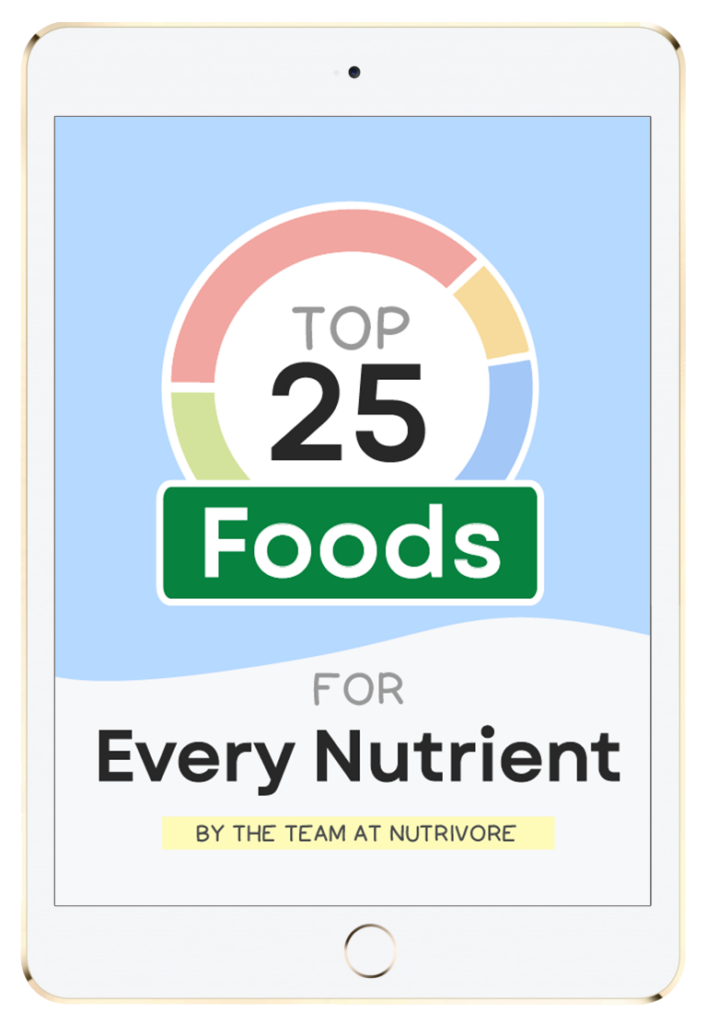
The Top 25 Foods for Every Nutrient
The Top 25 Foods for Every Nutrient e-book is a well-organized, easy-to-use, grocery store-friendly guide to help you choose foods that fit your needs of 43 important nutrients while creating a balanced nutrient-dense diet.
Get two “Top 25” food lists for each nutrient, plus you’ll find RDA charts for everyone, informative visuals, fun facts, serving sizes and the 58 foods that are Nutrient Super Stars!
Buy now for instant digital access.
How Much Turkey Giblets Should We Eat Per Day?
Offal, including turkey giblets, is a great source of protein, which is just part of the reason it is considered one of the most nutritionally valuable foods on the planet. In fact, offal is one of the most concentrated sources of just about every nutrient out there, including important vitamins, minerals, healthy fats, amino acids, and protein.
Proteins are the molecules that perform most of the various functions of life which is why protein deficiency is detrimental to all of the body’s organs and systems, including impacting function of the brain (especially in infants and young children), immune system, gut barrier, and kidneys. Dietary protein is necessary to supply the amino acid building blocks for all of the proteins in our bodies. Physical signs of protein deficiency include edema (swelling), poor musculature, dull skin, thin and fragile hair, and failure to thrive in infants and children.
The Accepted Macronutrient Distribution Ranges (AMDR) were established by the Food and Nutrition Board of the Institute of Medicine using evidence from interventional trials with support of epidemiological evidence that suggest a role in the prevention or increased risk of chronic diseases, and based on ensuring sufficient intake of essential nutrients. The AMDR for protein is 10% to 35% calories from protein.
The recommended daily allowance of protein is 0.36 grams per pound body weight (0.8 grams per kilogram of body weight). That amounts to 56 grams for a 150-pound person. However, it’s important to emphasize that this number is considered a minimum daily allotment, and there is no established upper limit. In fact, many studies have evaluated diets containing three to four times more protein than this minimum and proven benefits to weight management, body composition, hormone regulation, and cardiovascular health. These studies suggest that an optimal protein intake for most people is probably in the range of 1.2 to 1.8 grams per kilogram bodyweight (82 to 122 grams for that same 150-pound person), and that people who are very active may see the best results at even higher intake. Learn more about protein here.
Easily track your servings of Nutrivore Foundational Foods!
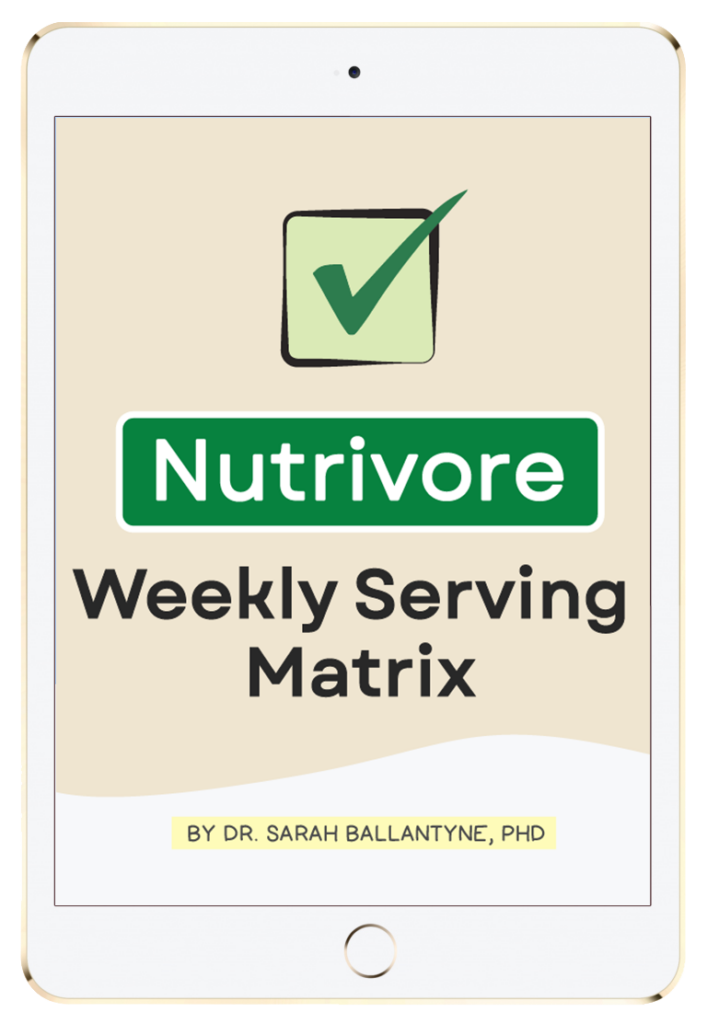
The Nutrivore Weekly Serving Matrix
The Nutrivore Weekly Serving Matrix digital resource is an easy-to-use and flexible weekly checklist designed to help you maximize nutrient-density and meet serving suggestions of Nutrivore foundational foods, all without having to weigh or measure your foods!
Includes a 22-page instructional guide and downloadable interactive guides.
Buy now for instant digital access.
cITATIONS
Expand to see all scientific references for this article.
Chin SF, Liu W, Storkson J, Ha Y, Pariza M. Dietary sources of conjugated dienoic isomers of linoleic acid, a newly recognized class of anticarcinogens. Journal of Food Composition and Analysis. 1992 Sept(5):185-197. DOI:10.1016/0889-1575(92)90037-K
Clements RS Jr, Darnell B. Myo-inositol content of common foods: development of a high-myo-inositol diet. Am J Clin Nutr. 1980 Sep;33(9):1954-67. doi: 10.1093/ajcn/33.9.1954. PMID: 7416064.
Ey J, Schömig E, Taubert D. Dietary sources and antioxidant effects of ergothioneine. J Agric Food Chem. 2007 Aug 8;55(16):6466-74. doi: 10.1021/jf071328f. Epub 2007 Jul 6. PMID: 17616140.
Kubo H, Fujii K, Kawabe T, Matsumoto S, Kishida H, Hosoe K. Food content of ubiquinol-10 and ubiquinone-10 in the Japanese diet. Journal of Food Composition and Analysis. 2008. Vol 21(3):199-210. https://doi.org/10.1016/j.jfca.2007.10.003.
Pravst I, Zmitek K, Zmitek J. Coenzyme Q10 contents in foods and fortification strategies. Crit Rev Food Sci Nutr. 2010 Apr;50(4):269-80. doi: 10.1080/10408390902773037. PMID: 20301015.
Sullivan TW, Cherms FL, Sunde ML. Giblet Yields and Dressed Weights of Four Classes of Poultry. Poultry Science. 1958. Vol. 37(3):736-738. https://doi.org/10.3382/ps.0370736
USDA Food Central Database: Turkey, whole, giblets, raw
Watanabe T, Kioka M, Fukushima A, Morimoto M, Sawamura H. Biotin content table of select foods and biotin intake in Japanese. Int J Anal Bio-Sci. 2014. Vol 2(4):109-125.
Wójcik OP, Koenig KL, Zeleniuch-Jacquotte A, Costa M, Chen Y. The potential protective effects of taurine on coronary heart disease. Atherosclerosis. 2010 Jan;208(1):19-25. doi: 10.1016/j.atherosclerosis.2009.06.002. Epub 2009 Jun 11. PMID: 19592001; PMCID: PMC2813349.


